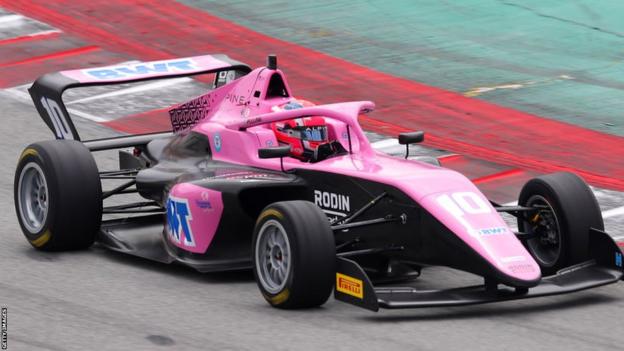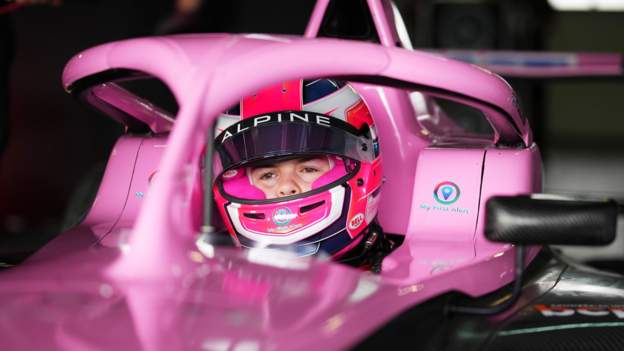
Women struggle to progress to the higher echelons of motorsport partly because of problems raising funding based on prejudice, a study has found.
More Than Equal, an organisation co-founded by ex-Formula 1 driver David Coulthard, said this was a key barrier to women making it to F1.
Other obstacles included the lack of female-specific training, too few role models, and mechanical challenges.
The study found female participation in motorsport is in the region of 10%.
But it also discovered that there was no global participation data for women in motorsport, which chief executive Alison Donnelly, who formerly worked for Sport England, said was a surprise.
The study says: “The cost of competing is a universal challenge to both men and women, but too few investors and sponsors are willing to take a chance on female drivers early in their careers, preventing their progress at crucial periods.”
Donnelly said: “A lot of the female drivers we spoke to said: ‘I’m spending an awful lot of time trying to drum up investment. And I can’t get on to track and into cars because I haven’t got that investment.’
“If you had two drivers, male and female, aged, let’s say, 14, both doing really well, same trajectory and results, and they both pitched to a sponsor or brand or team, he is just so much more likely to be backed because everybody can see the trajectory for him if he is good enough – off you go, along the path into F1 if you’re good enough.
“That hasn’t happened for such a long time for a female driver that what [women drivers] are saying is: ‘Nobody will back us, it’s just too much of a risk and it’s a lot of money.’
“The sport needs to do a much better job of selling to sponsors and brands: ‘This is why it’s important to invest in women; here’s what will happen at the end.'”
Donnelly said the new F1 Academy, established this year for young female drivers, was “beneficial because it is giving track time to girls at a very important time of their development”.
The study found that karting, the category in which all top drivers cut their teeth, accounts for 40% of female participation in all motorsport, but even there women and girls are only 13% of participants.
By the time drivers progress to formula and GT racing, that drops to 7%. In the top categories of the sport, the ratio reduces again to only 4%.
Stereotyping or negative perceptions about women’s ability to drive fast or compete physically are another barrier, as are women and girls encountering a “culture [that is] unwelcoming or inappropriate”.
The mechanical barriers include the lack of power steering in the categories on the route to F1, which does use steering assistance.
This collection of obstacles leads to female drivers dropping out of the sport much earlier than males, the study said.
Female careers last on average between one and five years, whereas male ones are more likely to last more than 10 years.
The performance group Hintsa, which is renowned for providing physical trainers for about half the F1 drivers, found that there was “no evidence that there are physical or psychological barriers in preventing women from reaching the top of the sport if given the appropriate support and training”, the study said.
Hintsa, which is working with More Than Equal, says the benchmark physical data required for an athlete to compete in F1 is achievable by women.
But it said that all motorsport-oriented physical and psychological training was based on men, and that women needed to be trained in a gender-appropriate and age-specific way.
The study found that there was an emerging younger, female fanbase and that fans want to see direct competition between women and men, but they perceived motorsport to be 20th out of 21 listed sports in terms of equality, diversity and inclusion.
Only 51% of fans knew for certain that women were allowed to compete in F1, with 24% saying they might be allowed, 13% that they could not and 21% saying they did not know.
Donnelly said More Than Equal had presented the results of the survey to governing body the FIA.
“They were incredibly supportive and they recognised the role they had to play,” she said. “They are a hugely important and powerful lever. Let’s see where we get to in terms of the new few years but we were really pleased with the reaction we had there and their interest in growing the sport.”
More than Equal intends to identify emerging female drivers and help them with commercial opportunities and a support programme to progress through the motorsport categories towards F1.
Donnelly added: “If we do the job well, what will start to emerge is a cohort of female drivers who emerge having trained better than ever before.”
